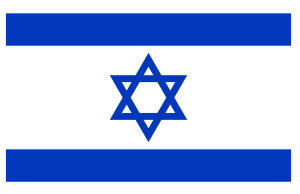I, too, have been heartbroken and profoundly saddened over the hatred among fellow Jews taking place in Israel in an unprecedented way.
The Talmud tells us clearly that the foremost reason for the destruction of the 2nd Temple in the year 70 CE, and subsequent exile is due to hatred among fellow Jews. We are still suffering from that very exile today, as we have yet to be redeemed from it. The Talmud comments in another section that any generation which has not been redeemed must have some degree of misdeeds which caused the destruction, because – if we didn’t – we would have been redeemed!
We are not prophets to have the right to declare that something as serious as the murders recently perpetrated are clearly for a particular reason. I have, however, been in a state of trepidation for some time now since the riots and demonstrations began, because we know what our sages have said about such things…
We need to see this for what it really is. It’s not simply the exercise of freedom of speech, but has unfortunately gone far, far beyond democratic rights and, in many cases, borders on treason. Even worse, it may be causing irreparable tears in the fabric of Israeli society and the Jewish people and putting the entire country in existential danger. It’s sad to see how ego can transcend even the sacrosanct value of safety of the Jewish people.
The counter to this is for us to go out of our ways to be kind and respectful to our fellow Jews, starting with our own families. We may not be able to directly affect what is transpiring in Israel, but it is still within our sphere of influence to make a difference to those around us. We can never know the ripple effect of this, of showing love to our fellow Jews, in the spiritual worlds and upon this world.
This is especially apropos in the Jewish month of Elul, as we prepare for Rosh Hashana. One of the deepest themes of Rosh Hashana is to show your love and concern for every Jew. The sages explain that this is implicit in the word the Torah uses for blowing the Shofar, “teruah,” which comes from the same root as “re’ah” or friend. One of the leading rabbis of our generation, R’ Noson Tzvi Finkel ob”m, on his last Rosh Hashana, although very weak stood up to speak before the blowing of the Shofar in his Yeshiva. Barely audible, he whispered these words, “people ask me what to think about during the shofar blowing. And I say, think about someone else.”
Rosh Hashana is the day we proclaim and coronate G-d as King. The Midrash says, “there’s no king without a nation.” To the extent that we pull together as a people, a nation, we bring glory and honorable reign to G-d’s Kingdom. Let’s do our part and hope it has an effect even as far as Israel!
Sincerely,
Rabbi Yerachmiel Fried


